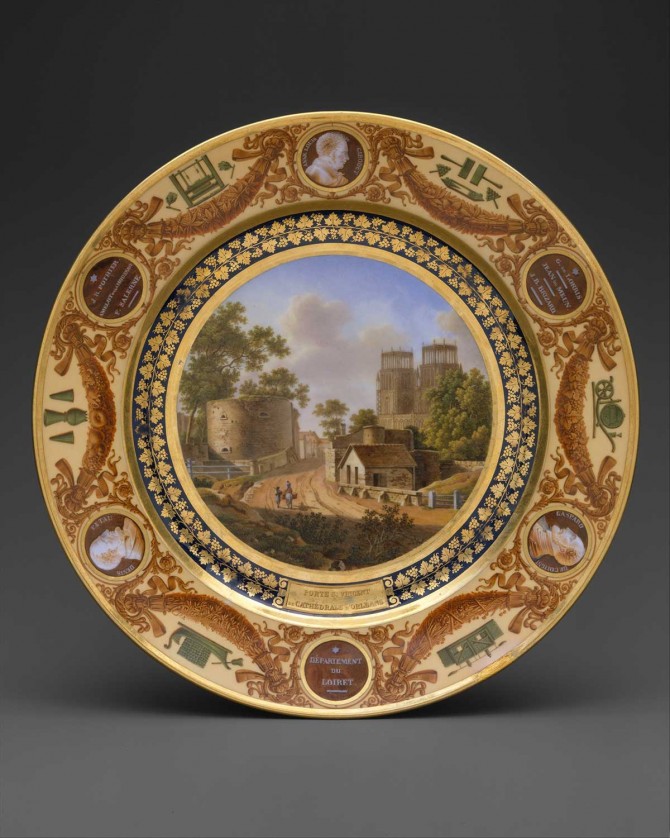News directly from Cornell's colleges and centers
A fragmented France depicted on dessert plates
By Kate Blackwood
Depict all of France on a set of dessert plates: this ambitious challenge was undertaken by the Sèvres porcelain manufactory in the 1820s, a time when the nation was deeply divided, said Kelly Presutti, assistant professor of history of art and visual studies in the College of Arts and Sciences.
“Referred to as a ‘tour of France in 100 dessert plates,’ the Service des Departments (1824-32) was a way of cataloguing the nation and representing it as a coherent whole. To do so in this fraught moment, however, required an abundance of words, both in the making of the service and in its final form,” Presutti wrote in an essay published May 25 in Word & Image: A Journal of Verbal Visual Enquiry. The article is drawn from Presutti’s book manuscript, “Terroir after the Terror: Landscape and Representation in Nineteenth-Century France.”
The resulting plate set, Presutti said, relies on words painted onto the plates, describing landscape views, labeling portrait medallions and detailing regional attributes.
“The text, unusual in Sèvres porcelain of the time, betrays a particular anxiety about the ability of landscape representation to stand for the nation, especially at a moment when France was itself disunified,” Presutti wrote.
Her essay describes both the ambition and the ultimate failure of the porcelain set to represent France for reasons having to do with the complexity of France’s territorial politics and its colonial holdings.
Media Contact
Get Cornell news delivered right to your inbox.
Subscribe


